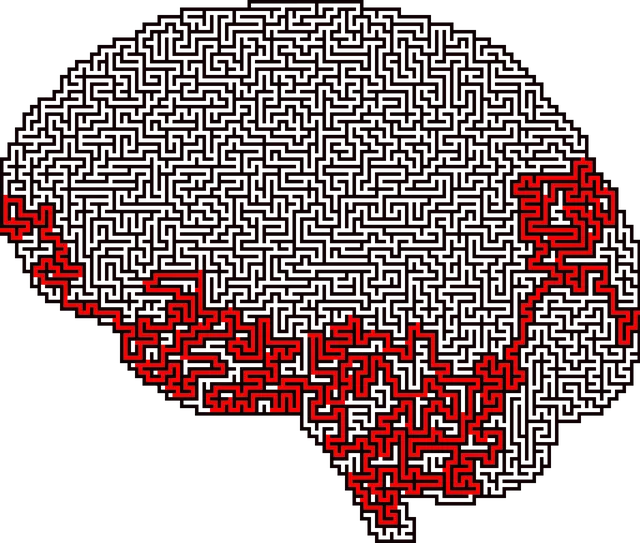Longmont Kaiser Permanente mental health center's open visiting hours combat stigma through community engagement and education, promoting understanding of mental wellness, anxiety relief, and trauma support services. Their programs, like the Mental Wellness Podcast Series, empower individuals to recognize and support others' mental health needs, improving overall well-being and policy advocacy.
Mental illness stigma remains a significant barrier to effective mental healthcare. This article explores various efforts aimed at reducing this pervasive social construct, focusing on strategies that have proven successful in fostering inclusivity and support. We examine case studies like the Longmont Kaiser Permanente mental health center, which has pioneered innovative approaches to care. Through community engagement, educational initiatives, and structured programs, these efforts empower individuals facing mental health challenges while breaking down societal barriers. Understanding and addressing stigma is crucial for improving access to quality mental healthcare, as demonstrated by Longmont Kaiser Permanente’s visiting hours and services.
- Understanding Stigma: Its Impact on Mental Health Care
- Longmont Kaiser Permanente: A Model for Change
- Community Engagement: Breaking Down Barriers
- Educational Initiatives: Empowering Through Knowledge
Understanding Stigma: Its Impact on Mental Health Care

Stigma surrounding mental illness can significantly hinder an individual’s ability to seek help and access appropriate care. This societal misconception often leads to ostracization, discrimination, and even self-stigmatization, where individuals internalize these negative perceptions, affecting their self-worth and willingness to discuss their struggles openly. The consequences are profound, as hidden mental health issues can escalate, impacting overall well-being and quality of life.
At Longmont Kaiser Permanente mental health center, visiting hours offer a space for community engagement and awareness. These initiatives aim to educate and connect individuals with emotional healing processes, promoting understanding and empathy. By fostering an environment where mental illness is normalized and treated with the same importance as physical health, centers like this can contribute to reducing stigma. Additionally, integrating practices that enhance emotional intelligence and stress management can empower individuals to navigate life’s challenges more effectively, ensuring better mental health outcomes for all.
Longmont Kaiser Permanente: A Model for Change

Longmont Kaiser Permanente stands as a beacon of hope and progress in mental health care. This renowned mental health center has been at the forefront of stigma reduction efforts, offering comprehensive services that cater to diverse needs. With its open visiting hours, it fosters an environment of accessibility, encouraging support networks to engage actively in the healing process. The center’s commitment to mental health awareness is evident through its diverse range of programs and workshops, providing a safe space for education, discussion, and anxiety relief.
Longmont Kaiser Permanente’s innovative approach includes integrating Trauma Support Services, recognizing the profound impact of traumatic experiences on mental well-being. By prioritizing individual care and community engagement, this mental health center is transforming lives and challenging societal norms, setting a benchmark for others to follow in the ongoing battle against stigma.
Community Engagement: Breaking Down Barriers

In efforts to reduce the stigma surrounding mental illness, Community Engagement plays a pivotal role in fostering understanding and acceptance. The Longmont Kaiser Permanente mental health center, with its extended visiting hours, serves as a hub for community members seeking support and resources. By offering accessible services and increasing visibility, the center breaks down barriers, encouraging open conversations about mental wellness. This accessibility is further amplified through the Mental Wellness Podcast Series Production, where professionals share insights on topics like anxiety relief and burnout prevention strategies for healthcare providers.
Engaging with the community in this manner not only helps in destigmatizing mental health issues but also equips individuals with knowledge to identify signs of distress and offer appropriate support. Such initiatives create an environment where people feel comfortable seeking help without fear of judgment, ultimately contributing to improved mental health outcomes.
Educational Initiatives: Empowering Through Knowledge

Educational initiatives play a pivotal role in breaking down the barriers associated with mental illness stigma. One such example is the Longmont Kaiser Permanente mental health center, which offers visiting hours for community engagement and education. By providing a safe and accessible space, this center facilitates open conversations about mental health, fostering empathy and understanding among visitors. These educational efforts empower individuals to recognize the signs of various mental health conditions and demystify treatment options available, including Mood Management and Stress Management Workshops.
Through interactive sessions and informative resources, organizations like Longmont Kaiser Permanente contribute to a broader Mental Health Policy Analysis and Advocacy movement. By sharing knowledge and challenging societal norms, these initiatives enable people to dispel misconceptions, reduce fear, and encourage individuals facing mental health struggles to seek timely support.
Stigma reduction is a multifaceted approach, as exemplified by initiatives at Longmont Kaiser Permanente mental health center. By combining community engagement, educational programs, and accessible services like those offered during visiting hours at the Longmont Kaiser Permanente mental health center, we can foster an environment of understanding and support for individuals living with mental illness. Efforts to break down barriers and empower through knowledge are crucial steps toward a more inclusive society that prioritizes mental well-being for all.






